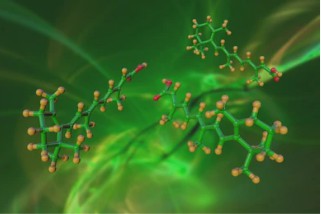
Forage is a major system for improving animal production. With the increasing demand for meat, there is a need to provide the livestock industry with new forage species of higher yield, quality, and durability. Increasing forage production solely through on-farm management, such as fertilization or defoliation and fodder distribution, is under pressure from negative environmental impacts. Recent developments in DNA sequencing technologies have made plant quantitative trait locus analysis and marker-assisted selection faster and cheaper. They are increasingly used in forage breeding processes to improve forage yield, tolerance and persistence under biotic and abiotic stresses, and forage quality. However, these genotypic markers are mainly associated with readily observable phenotypes, such as seed yield. Many of the desired traits are directly related to specific metabolites, and targeting analysis of these metabolite classes is used for selection and quantitative trait locus analysis of genetic markers.
High-throughput phenotyping of forages is currently a major bottleneck. Our team of experts is developing metabolomics technologies to simultaneously analyze a wide range of forage metabolite classes in a high-throughput and non-targeted manner, thereby bridging the gap between genotype and phenotype and screening a large number of forage genotypes and populations. Lifeasible offers the following metabolomic approaches to present a truly "holistic" view of the forage metabolome and combines multiple extraction, isolation, and detection techniques to detect most metabolites present in forage grasses. Our techniques produce a vibrant data output and provide meaningful information for forage breeding through extensive processing and mining.
Lifeasible is one of the world's leading forage research companies, provides specialized metabolomic analysis services for forage grasses, including but not limited to:
Reducing three resources (water, nitrogen, and phosphorus) is a major challenge for forage production. We provide metabolomic services for forage plant responses to abiotic stress to analyze the response of many metabolites to water and nutrient stress.
As with many other plants, forage grasses form extensive associations with endosymbiotic heterotrophic microorganisms. We offer metabolomic approaches to analyze the impact of these associations on the metabolic composition of whole symbionts or specific cellular structures.
We combine forage genetics and metabolomics to identify genetic regions associated with specific metabolites or metabolic profiles, which are valuable tools for genetic and phenotypic analysis of large-scale propagated forage populations and are widely used by our clients in forage breeding programs.
For many years, Lifeasible has led the forage industry with innovative metabolomics, variety development, and cutting-edge technologies. By providing extensive analysis of forage chemistry, our metabolomics approach offers plant breeders a vital opportunity to evaluate traits previously considered too difficult or expensive to incorporate into forage breeding programs. For more information or to discuss in detail, please contact us.
Reference
Lifeasible has established a one-stop service platform for plants. In addition to obtaining customized solutions for plant genetic engineering, customers can also conduct follow-up analysis and research on plants through our analysis platform. The analytical services we provide include but are not limited to the following:
July 13, 2024